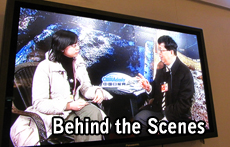Diplomacy, not sanctions: FM
By Li Xiaokun (China Daily)
Updated: 2010-03-08 07:40
|
 Foreign Minister Yang Jiechi attends a press conference at the Great Hall of the People in Beijing on Sunday.[Tian Ming/China Daily] |
Yang signals reluctance to accept new sanctions against Iran
Beijing: Foreign Minister Yang Jiechi on Sunday signaled Beijing's reluctance to accept new sanctions against Iran for its nuclear program, but did not go so far as to rule out the possibility.
"There are some difficulties surrounding efforts to settle the Iranian nuclear issue at present, but we do not think diplomatic efforts have been exhausted," Yang said at a news conference held on the sidelines of China's annual parliamentary session.
"As everyone knows, pressure and sanctions cannot fundamentally solve this issue," he said.
"So we hope all parties involved stick to diplomatic negotiations, allowing political wisdom to help seek a comprehensive, reasonable and fair solution.
"Let me stress that it is our consistent position to uphold the international nuclear non-proliferation treaty, fostering peace and stability in the region," Yang said.
The draft proposal includes a call for restrictions on more Iranian banks and, possibly, a full arms embargo on Teheran accompanied by an inspection team. However, it does not call for sanctions against Iran's oil and gas industries, which would hurt the country's close economic ties with China and Russia, according to Reuters.
So far Russia's reaction to the new proposal has been negative, but it is likely to vote in favor of diluted sanctions, according to unnamed Western diplomats cited by Reuters.
While Beijing has yet to react, it has long insisted that sanctions are not an effective way to resolve such disputes. Western diplomats have predicted that China will either assent to the proposal or abstain from voting if Russia agrees to pressing ahead with the sanctions.
According to Reuters, the diplomats have said that while it is acknowledged that Iran is an important source of energy for China, Beijing's ties with the US must not be underestimated.
Chinese experts on Middle East affairs said it is possible for Beijing to veto the proposal following Washington's irritating attitude on a recent series of Chinese affairs.
Gong Shaopeng, a professor with China Foreign Affairs University, said China is likely to veto the proposal.
"One of the major principles for diplomacy is equity. Given what the US recently did to China, we should say 'Sorry, we are vetoing it'. I think the US would understand why China did that," Gong added.
Zhang Xiaodong, deputy chief of the Chinese Association for Middle East Studies, said China is unlikely to cooperate with the US on the sanctions, but will not veto them.
"China is likely to bargain on the items and dilute them, especially those on banking and the insurance sectors that would seriously hurt foreign companies' investment there. But a veto is meaningless and will disturb China's overall diplomatic plan. In my view, an abstention is Beijing's upper limit."
Although Western powers have accused Iran of making nuclear weapons, Teheran claims its uranium enrichment program is strictly for peaceful purposes.
While China has backed previous UN sanctions against Iran, it has insisted on diluting the restrictions.
When asked whether China would send troops to help keep stability in neighboring Afghanistan, Yang said that many nations believe "a military approach is not the fundamental way to solve the Afghan issue", signaling there was little possibility of movement in that direction.








